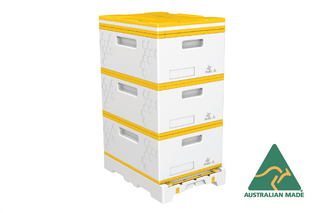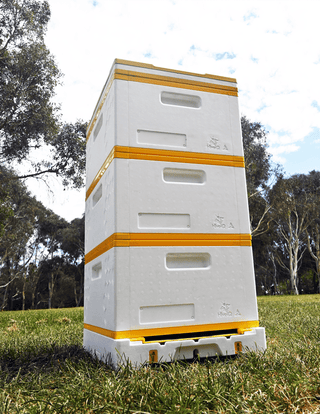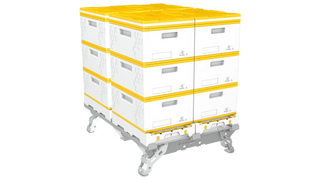Beekeeping is a fascinating and rewarding hobby, but it can also be challenging, especially for new beekeepers. There are many factors to consider when starting a beekeeping operation, and it's easy to make mistakes that can harm the bees or reduce honey production. In this article, we'll discuss the five biggest mistakes new beekeepers make and how to avoid them.
1. Not doing enough research
One of the biggest mistakes new beekeepers make is not doing enough research before starting. Beekeeping requires a lot of knowledge, skills, and experience, and it's important to understand the basics of bee biology, hive management, and bee health. Before getting started, new beekeepers should read books, attend classes, or join a local beekeeping club to learn more about beekeeping.
2. Not investing in quality equipment
Another common mistake new beekeepers make is not investing in quality equipment or buying the latest gimmick beehive. The most important consideration when deciding on which of the myriad of hives to invest in is the health and well being of your bees. For example, most colonies collapses occur in winter largely due to exposure to the cold. High insulation properties of your new beehive should therefore be an important consideration.
Beekeeping requires specialized equipment such as hives, frames, protective clothing, and tools, and it's important to buy quality equipment that is durable and effective and good for the bees. Cheap or poorly made equipment can lead to hive failures, poor honey production, and even injuries.
3. Overfeeding or underfeeding bees
New beekeepers often struggle with feeding their bees correctly. Overfeeding bees can lead to the adulteration of your honey with sugar syrup.honey. On the other hand, underfeeding bees can lead to malnutrition and colony collapse. It is heart breaking to discover that your bees have suffered a slow and painful death due to starvation. The following picture shows bees that have died from starvation. The bees died with their heads (tails out) in the cells trying to find the last drop of food.

This cruel death can be easily avoided by feeding sugar syrup. New beekeepers should seek advice from their local bee club or an experienced beekeeper on the right amount and method of sugar syrup and/or pollen substitute feeding. This can vary depending on the season and the hive's needs.
4. Not monitoring hive health
Beekeeping is not a "set it and forget it" hobby. New beekeepers often make the mistake of not monitoring their hive's health regularly. Beekeepers should inspect their hives regularly to check for signs of pests and diseases, and to ensure that the bees have enough food and water. Monitoring hive health can help beekeepers catch potential problems early and take action to prevent colony collapse.
5. Not taking safety seriously
Beekeeping can be dangerous, especially if beekeepers don't take safety seriously. New beekeepers often underestimate the risks of bee stings, which can cause severe allergic reactions or even death. Beekeepers should wear protective clothing, such as a bee suit, gloves, and a veil, when working with their hives. They should also keep an epinephrine auto-injector on hand in case of a severe allergic reaction.
Beekeeping can be a rewarding and enjoyable hobby, but it requires knowledge, skill, and experience. New beekeepers should do their research, invest in quality equipment, feed their bees correctly, monitor their hive's health regularly, and take safety seriously. By avoiding these common mistakes, new beekeepers can enjoy a successful and sustainable beekeeping operation.
To ensure you start off on the right foot, use our revolutionary polystyrene beehives to keep your bees healthy and strong.




